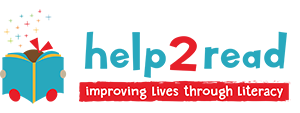After-School Reading Clubs – Beyond the schedule
12 December, 2017
Earlier this year, we launched an after-school programme to extend our reading support beyond the academic calendar. Reading Clubs and Holiday Reading Clubs were piloted at partner schools in Johannesburg and Cape Town during 2017. The result: jam-packed classrooms filled with children eager to read and participate in the fun after-school literacy programme.
Reading Clubs include activities focused on making reading fun. A love for reading inspires and encourages healthier reading behaviour and this essentially improves literacy skills and the ability to read for meaning. Reading, singing, reciting nursery rhymes and other innovative activities are used to ensure that learners are enticed and engaged throughout. Fresh air, fun and refreshments have proven to be a winning combination.
“The learners surprised us every day as they invited friends to come and join in” (Georgine Van Neel (Senior LT).
Schools can benefit immensely from partnering with organisations offering after school activities or clubs, especially those that have the improvement of academics in mind. The benefits of keeping children occupied in a productive and healthy manner, and in a safe and fun environment are great.
“The reading club is benefitting the learners because they have shown improvement. Some of them have requested reading books to take home for the first time since they started school. They are now able to answer basic, simple questions relating to the story. Interestingly some are now able to tell the story using their own words.” Mr L Makgato (Gr 4 teacher at Iphuteng Primary School.
Research has been conducted in various parts of the world to investigate the impact of after-school programmes on learners’ academic performance. A research project conducted in the U.K by NatCen Social Research, Newcastle University and ASK Research investigates the link between children’s participation in out of school activities and outcomes at age 11. It was discovered that learners who participated in after-school clubs benefit positively from them. When focussing on aspects such as building self-esteem and confidence, education, fitness, and creating an opportunity for learners to relax and socialise, the programme is both productive and fun. Stakeholders such as parents, learners and teachers were able to identify a range of positive ways that after-school programmes impacted children and families. In this study, there were instances where a direct link could be made to the learner’s academic accomplishments. (Briefing paper 3. London: NatCen Social Research, 2016. Out of school activities & the education gap 3).
Debbie Stott (2016 – Five years on: learning programme design for primary after-school maths clubs in South Africa) refers to these programmes as out of school time (OST) programmes and reports that they are being seen more and more as a way of bridging the gap. She further reports that according to literature when there is an academic focus with specific features, positive results are observed. Similarly, the U.S Department of Education reviewed after-school programmes across the country in 1998. It was found that there were improvements in terms of achievements in district schools where after-school programs were initiated. (Brickman , 1996; Chicago Public Schools, 1998; Gregory, 1996; Louisiana Department of Education, 1996; Brooks and Mojica, 1995; McLennan Youth Collaboration Inc., 1997; Ross, et al., 1996 as cited in Education Week, November 2017).
School holidays are often the cause of major concern for parents and teachers alike. Parents are apprehensive about the expectations that usually exist around making school holidays an event in addition to the safety and well-being of children. Teachers are often agonised by the thought of their learners developing “temporary amnesia” when schools reopen. Even help2read literacy tutors have reported that when learners return from school holiday, there needs to be a period of refreshing their memories. The after-school programmes are a way of keeping learners’ minds alert while engaging them in constructive and entertaining ways.
References
http://eprint.ncl.ac.uk/file_store/production/232456/3BDEE6A8-646B-4EE8-B01F-ED0C672C21C6.pdf
https://www.edweek.org/ew/issues/after-school-programs/index.html

Registered SA Non-Profit 063-979 PBO 930027054 UK Charity Reg No. 1109567 Registered Office: Oak Farm Cottage, Mill Street, Gislingham, Suffolk, IP23 8JT





